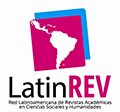About the Journal
Focus and scope
Dixit is an open access, refereed and indexed digital journal of the Universidad Católica del Uruguay. It publishes original and unpublished research articles in Spanish and, occasionally, at the Editorial Board's discretion, in English and Portuguese. Its focus is on Communication, which can be in dialogue with other disciplines of the Arts, Humanities and Social Sciences, with an editorial style that promotes agile reading of rigorous work. It is aimed at individuals and institutions interested in the field of Communication and related disciplines.
Dixit is indexed in ESCI (Web of Science), Catálogo Latindex 2.0 and en BIBLAT; distributed in SciELO, Dialnet, EBSCO, MIAR, HAPI and CLASE databases, and registered in DOAJ (Directory of Open Access Journals), LA Referencia, LatinREV, ROAD, SILO and Timbó. The journal is member of AURA and the Red de Investigadores en Diseño (Universidad de Palermo), and is also in the social network X.
History of Dixit
Dixit published its first issue in December 2006 and has been in continuous publication ever since. It was founded by a group of professors and graduates from the Universidad Católica del Uruguay as an editorial project designed to create a space for academic dialogue where theory, practice, and the challenges of professional communication — both in Uruguay and worldwide — could converge. In 2011, with its 15th issue, the journal formed an Editorial Committee made up of renowned national and international experts to establish quality standards for its publications and to expand its network of contributors across the region.
In 2013, after six years of uninterrupted publication and seventeen issues, Dixit entered a new stage as a peer-reviewed journal. Starting with issue 18, its sections were restructured, and research articles, reviews, and interviews began to undergo double-blind peer review. In 2018, with issue 29, Dixit transitioned to a fully digital format. Since 2020, beginning with issue 32, it has focused exclusively on academic content.
Frequency of publication
Starting in 2024, Dixit is published in the form of a continuous publication in an annual volume.
Types of contributions
- Research articles. They are original and unpublished papers, with a length between 6,000 and 8,000 words (including abstracts, references, notes, tables and figures) and a limit of up to 35 references. For literature review articles, up to 50 references are accepted. These collaborations are peer-reviewed in a double-blind system.
- Essays: These are original and unpublished academic texts of an argumentative nature, which present a proposal for reflection or a problem of study from a personal perspective. They are between 4,000 and 8,000 words long, and a limit of up to 35 references. These collaborations are peer-reviewed in a double-blind system. Essays are accepted by invitation from the Editorial Board.
- Bibliographic reviews. They should be between 1,500 and 3,000 words in length. These collaborations are evaluated by the Editorial Board.
- Thematic dossier. Proposals for thematic dossiers are received and will be evaluated for acceptance and implementation by the Editorial Board. Preference will be given to those proposals that have a regional scope over themes linked to particular territories or countries. They should include a well-founded presentation of the topic (up to 500 words), the names of the persons who will coordinate the dossier as guest editors and a summary of the curricula vitae of each of them (up to 500 words). These proposals will be sent to the journal by e-mail to the editor in charge.
Since 2024, the journal receives manuscripts for early publication (preprints), which have been published as such on a specific platform (e.g, SciELO Preprints, arXiv, SSRN, Preprints.org, among others).
In all cases, the Editorial Board of Dixit decides whether the contributions received are in accordance with the focus and editorial style of the journal, and in which volume they are published.
Languages
Dixit publishes articles in Spanish, English and Portuguese. In these last two cases, if the article is accepted by the Editorial Board and passes the reviewing process, its authors undertake to ensure the professional quality of the edition of the final version of the text.
Free of charge and open access publication
Dixit is a free publication; it does not charge any fees for submitting, evaluating, or publishing articles. The journal is funded by the Universidad Católica del Uruguay.
Dixit does not charge for subscriptions; the journal is free and open access. Users can access the full text of all articles freely and free of charge.













